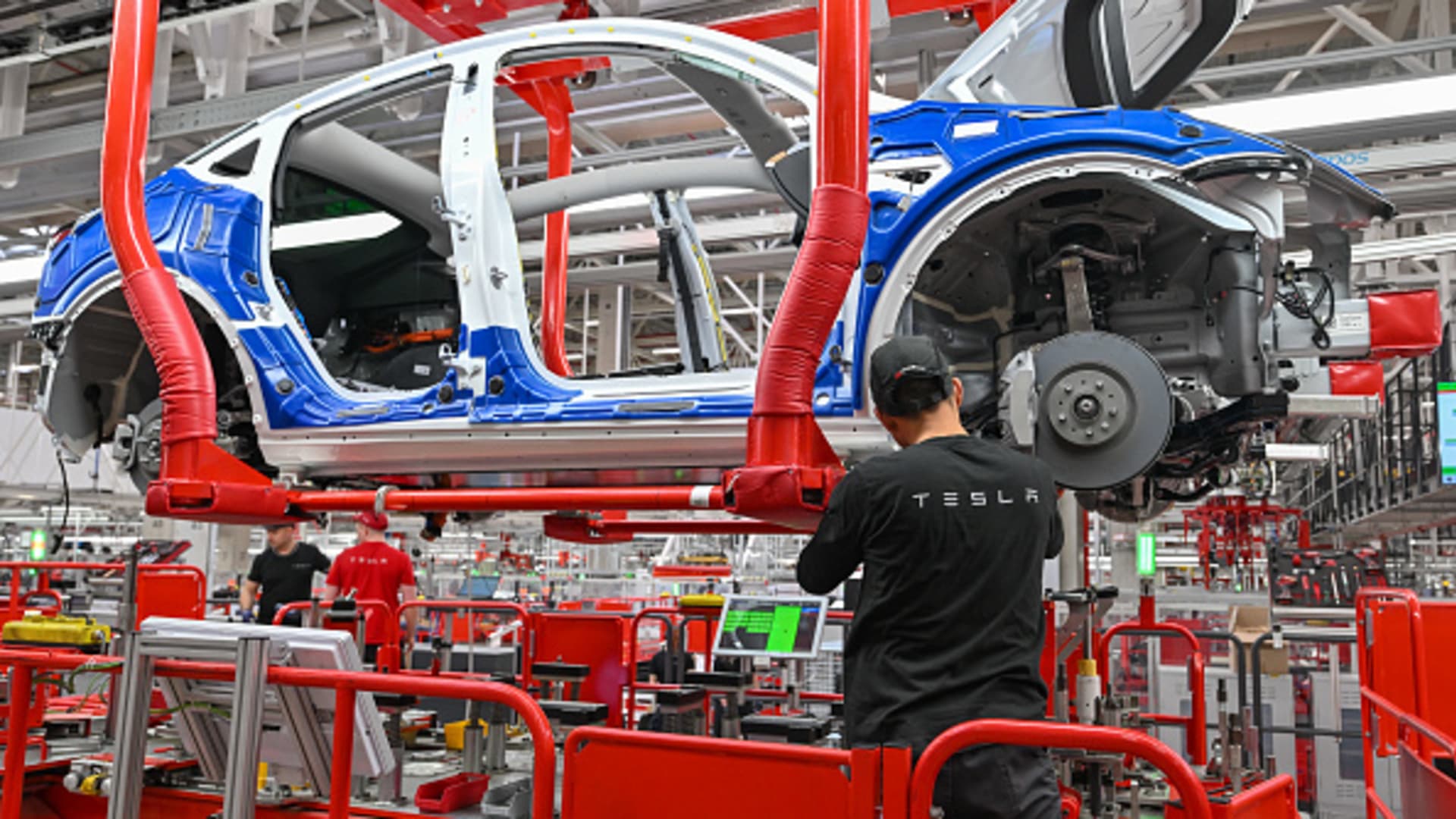Shares of Tesla dipped as much as 3% Friday morning as the stock faced pressure from supply chain delays due to a crisis on the Red Sea, and after offering more price cuts on its vehicles in China. In the U.S., rising labor costs and a decision by rental car company Hertz to sell off a large portion of its electric vehicle fleet, also added to Tesla’s woes.
Shares had recovered a bit by 10 a.m. ET, when the stock was down about 1.5%.
Reuters reported late Thursday that Tesla plans to suspend most production at its factory outside Berlin in Grunheide, Germany from around Jan. 29 to Feb. 11 due to conflict in the Red Sea that has disrupted global trade.
The Iranian-backed Houthi militia group has been attacking cargo ships and merchant vessels in the Red Sea in response to the ongoing war in the Gaza Strip. These attacks have drawn condemnation from leaders around the globe.
“The considerably longer transportation times are creating a gap in supply chains,” Tesla told Reuters in a statement.
Analysts at Baird estimate Tesla produces between 5,000 and 7,000 vehicles per week at its German vehicle assembly plant, which would imply “a 10k-14K hit” to deliveries in its first quarter, according to a Thursday note.
The Baird analysts wrote that they are “wary” of further impacts to Tesla’s supply chain, and they are “closely monitoring” any impact on the company’s shipping routes from China. “No delays have been cited, however, we speculate that disruptions in the Red Sea may lead to longer wait times as supply chains are rerouted,” they wrote.
Analysts were also focused on Tesla’s continuing price cuts including new discounts in China. Morgan Stanley analysts noted Model 3 and Model Y vehicles have been freshly discounted, though the cuts were “more moderate than the market had expected,” according to a note Friday.
Price cuts over the past year have impacted Tesla’s ability to keep selling its fully electric vehicles in high volumes to rental car companies including Sixt and Hertz.
Hertz CEO Stephen Scherr said on CNBC’s Squawk on the Street on Thursday that his company is taking 20,000 EVs out of its fleet, which was comprised mostly of Tesla vehicles.
Hertz is trying to “bring supply in line with demand” Scheer said, and “addressing a cost issue related to the EVs in the context of damage and damage costs” as well as depreciation in the value of the electric vehicles.
Meanwhile, Tesla’s business and reputation remains under pressure in Europe due to ongoing labor strikes in Sweden and throughout Scandinavia.
At its factories in the U.S., the EV maker is implementing pay rate increases for workers that kick in this month, a move seen as a tactic to stave off workers’ wishes to unionize. The pay bumps follow historic wins by the United Auto Workers in 2023 with Tesla competitors in Detroit, and an announcement by UAW that it would aim to organize beyond the Big Three including at Tesla, Toyota and others.
